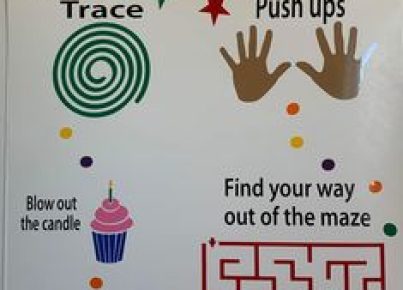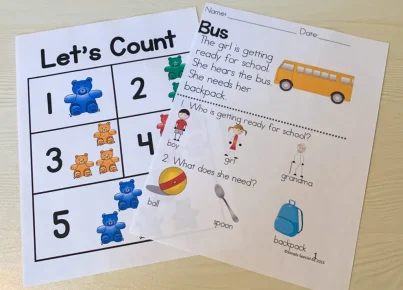Introduction:
Just like adults, children can also struggle with obsessive-compulsive disorder (OCD). This often misunderstood and stigmatized mental health condition affects the lives of millions of children worldwide. In this article, we will explore the challenges young individuals with OCD face and discuss how to empathize, support, and encourage them.
Understanding OCD in Children:
Obsessive-compulsive disorder is characterized by persistent and intrusive thoughts (obsessions) that lead to repetitive behaviors (compulsions) performed in an effort to alleviate the distress caused by these thoughts. For children with OCD, these feelings and actions can be overwhelming, all-consuming, and challenging to manage alongside typical childhood responsibilities—like schoolwork and social interactions.
Everyday Struggles:
Young individuals with OCD may struggle with a range of issues in their daily lives. These challenges can include:
1. Intrusive thoughts: A child with OCD may be constantly plagued by unwanted thoughts that consume their attention. This can make it difficult for them to focus on schoolwork, activities, or even simple conversations.
2. Irrational fears: Children with OCD may develop irrational fears or a heightened sense of responsibility for the well-being of others. They might worry about harm coming to their family members or friends if they don’t perform certain rituals.
3. Compulsive behaviors: Kids coping with OCD often feel compelled to perform specific rituals (like excessive hand-washing or repeatedly checking locks) in an attempt to reduce anxiety or prevent perceived negative outcomes. These compulsions can disrupt daily life and cause distress for both the child and their family.
4. Social challenges: The repetitive actions and intense internal struggles faced by a child with OCD may lead to social isolation or difficulty making friends. They might feel embarrassed about their obsessions or compulsions and worry about what others think of them.
5. Emotional distress: Coping with the constant cycle of obsessions and compulsions can leave a child feeling exhausted, frustrated, and helpless. This emotional turmoil can impact their self-esteem, mood, and overall well-being.
Supporting a Child with OCD:
If you’re a parent, teacher, or caregiver of a child with OCD, there are several ways you can offer support:
1. Validate their feelings: Acknowledge the child’s fears and anxiety without judgment. Make sure they know that it’s okay to feel scared or stressed sometimes. Encourage open communication about their thoughts and experiences.
2. Educate yourself: Learn about OCD as much as you can to better understand what the child is going through. Educate yourself on coping strategies, treatments, and resources available for support.
3. Encourage treatment: If a child is struggling with OCD, professional help might be necessary. Encourage the family to seek support from mental health professionals who specialize in treating OCD in children.
4. Create a structured routine: Establishing routines and setting boundaries can help a child feel more secure and less anxious.
5. Teach healthy coping skills: Assist children in developing healthy coping mechanisms like deep breathing exercises and visualization techniques to manage anxiety.
Conclusion:
Being a kid with OCD can be an incredibly challenging experience filled with unique obstacles. By understanding the complexities of this condition, we can foster empathy and support for those affected by it. Together, we can create an inclusive and nurturing environment for children struggling with OCD to aid them in building resilience, overcoming challenges, and leading fulfilling lives.





